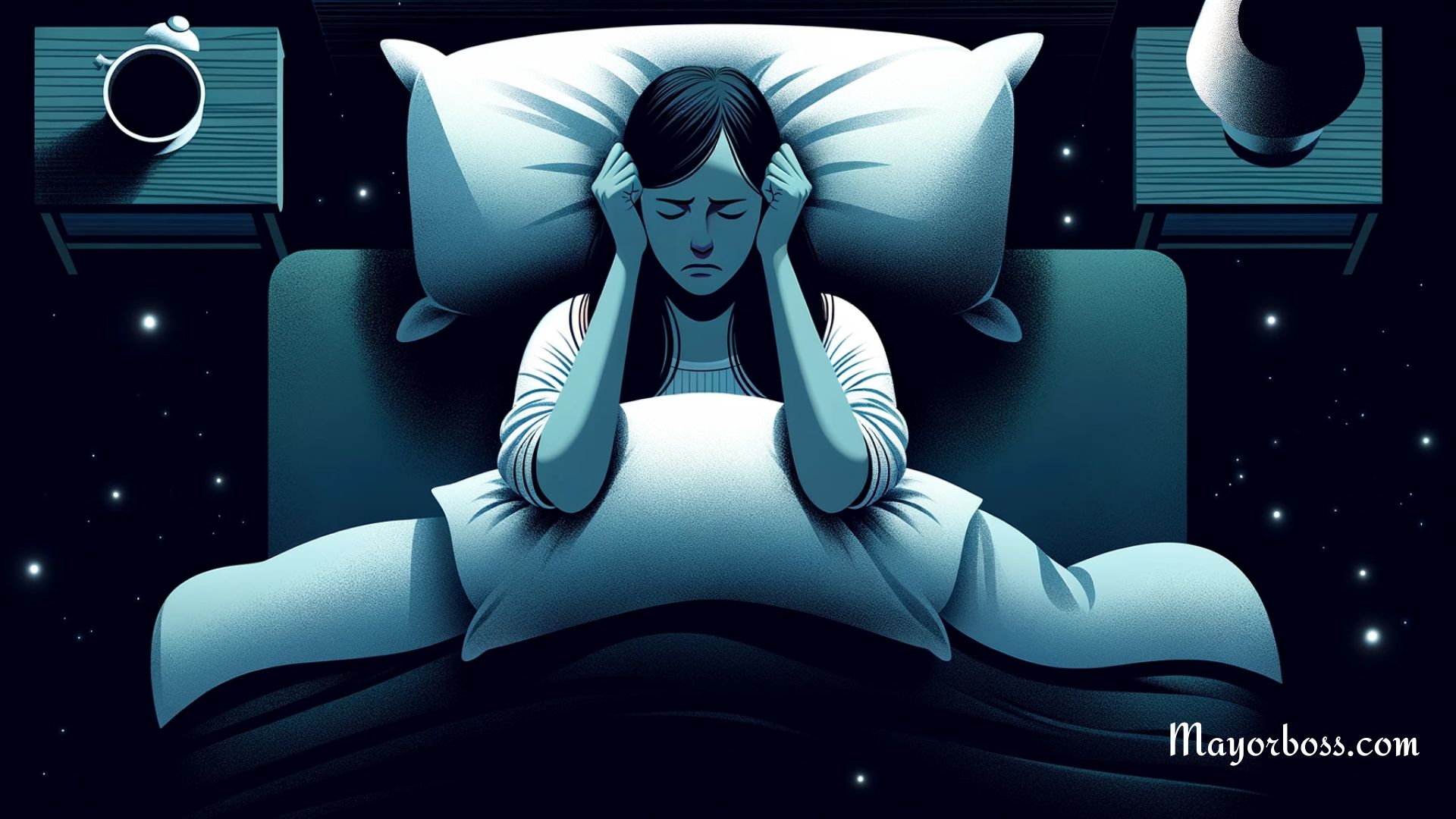Reason You Can’t Sleep Through The Whole Night
Summary: You might find it difficult to sleep through the night due to various reasons ranging from lifestyle choices to medical conditions. Common causes include anxiety, stress, depression, caffeine intake, and underlying health problems. Here, we’ll explore some of these reasons in detail.
Why You Can’t Sleep Through The Whole Night

Caffeine and Alcohol
If you consume beverages with caffeine, such as coffee or tea, especially in the afternoon or evening, it can interfere with your sleep. Similarly, while alcohol might make you feel drowsy initially, it can disrupt your sleep cycle later in the night.
Late-Night Screen Time
The blue light emitted from phones, tablets, and computers can trick your brain into thinking it’s still daytime. This can prevent the production of melatonin, a hormone that helps regulate sleep. So, even if you feel tired, your brain remains active.
Anxiety, Stress, and Depression
For many people, anxiety, stress, and depression are major barriers to a good night’s sleep. When you’re anxious, stressed, or depressed, your mind tends to race, making it hard to relax and drift off to sleep. Moreover, concerns about work, health, or family can keep you awake.
Sleep Apnea
This is a serious sleep disorder where your breathing stops and restarts continually while you sleep. If you snore loudly and feel tired even after a full night’s sleep, you might have sleep apnea.
Restless Leg Syndrome
A condition where you have an uncontrollable urge to move your legs, usually due to an uncomfortable sensation. It typically happens in the evening or nighttime hours when you’re sitting or lying down.
Medications
Certain medications can interfere with sleep. For instance, medications for high blood pressure, depression, and asthma might keep you awake. It’s important to discuss any sleep problems with your doctor if you’re taking medications.
Environment
A noisy neighborhood or a bed partner who snores can interrupt your sleep. Also, a room that’s too hot or too cold can make it hard to get comfortable.
Unsettled Sleep Schedule
Traveling to a different time zone, working late shifts, or having an inconsistent sleep schedule can mess with your body’s internal clock.
Aging
As you grow older, changes in sleep patterns are natural. You might find yourself waking up earlier or more frequently during the night.
Eating Habits
Eating large or spicy meals before bed can cause discomfort and indigestion. This discomfort can keep you awake.
Overthinking
Lying in bed and overthinking about past or future events can prevent you from falling asleep. It’s essential to have a bedtime routine that helps calm your mind.
Hormonal Changes
For many people, especially women, hormonal changes during the menstrual cycle or menopause can lead to sleep disturbances.
Chronic Pain
Conditions like arthritis, chronic back pain, neck pain, or headaches can make it challenging to find a comfortable sleeping position, causing frequent awakenings during the night.
This fact is clear: sleep is crucial for our well-being. If you’re experiencing sleep disturbances, it’s essential to identify the cause and address it. Whether it’s a lifestyle change or seeking medical advice, ensuring a restful night’s sleep should be a priority.
